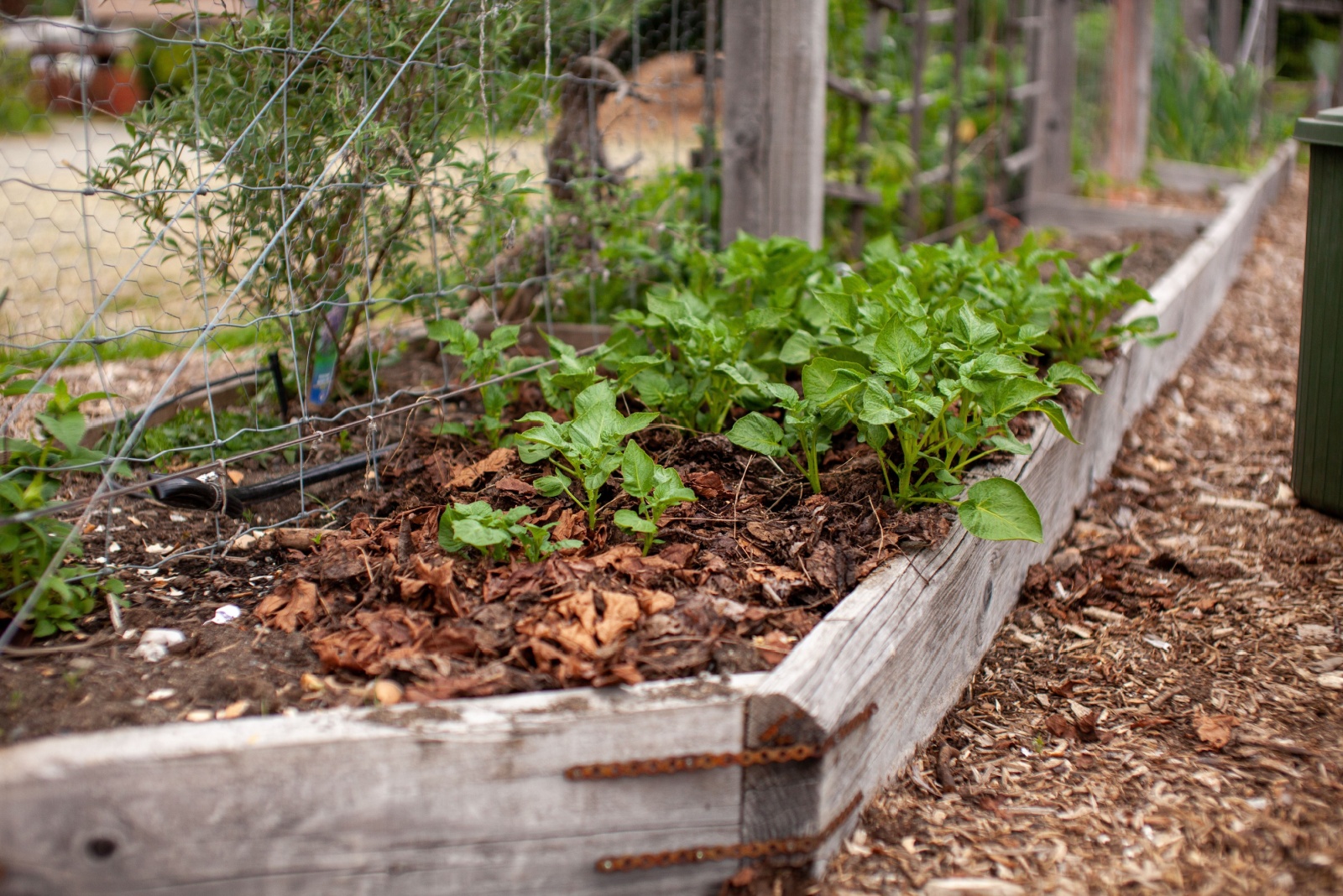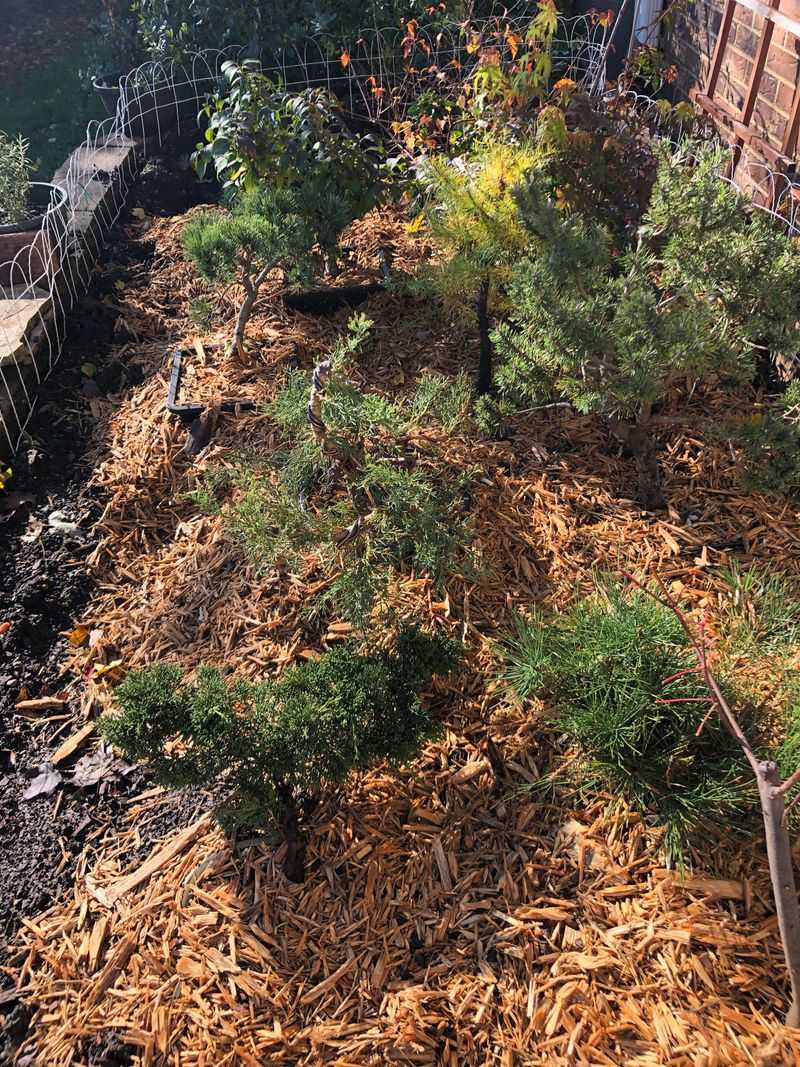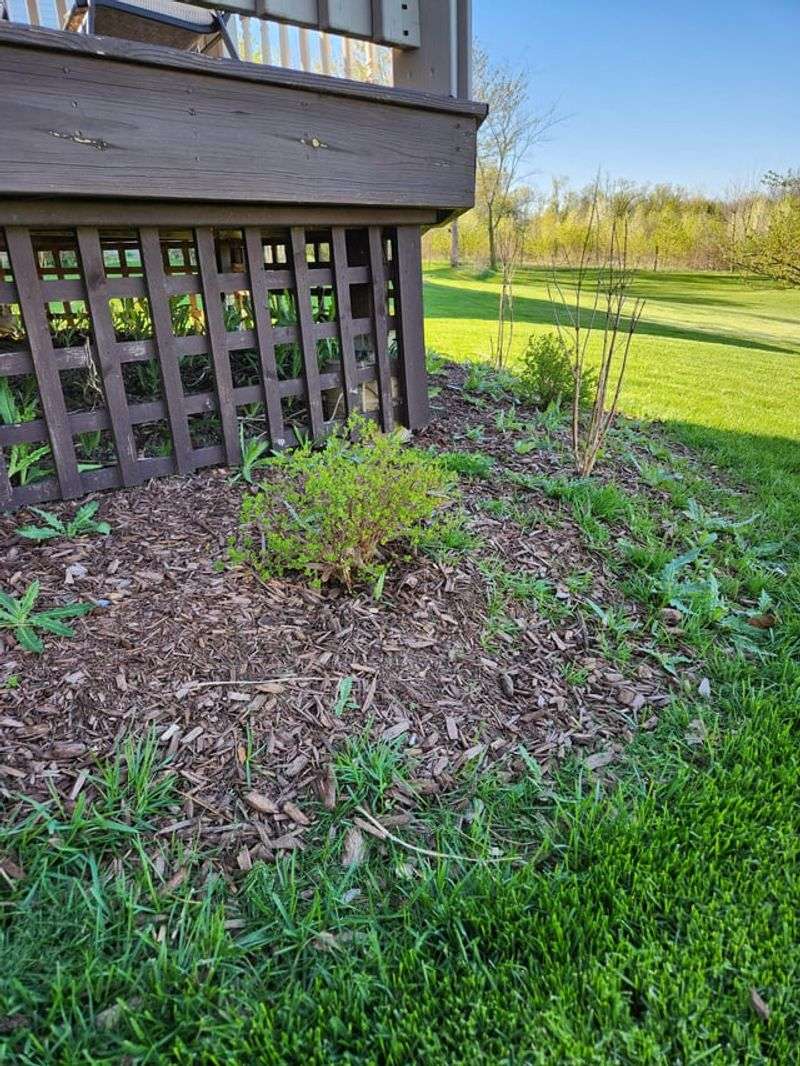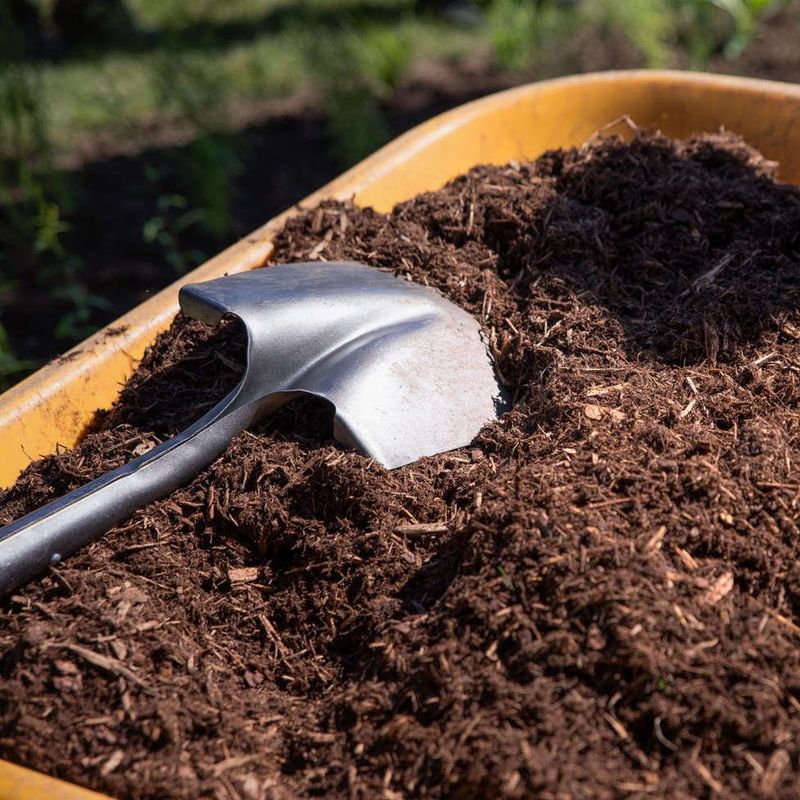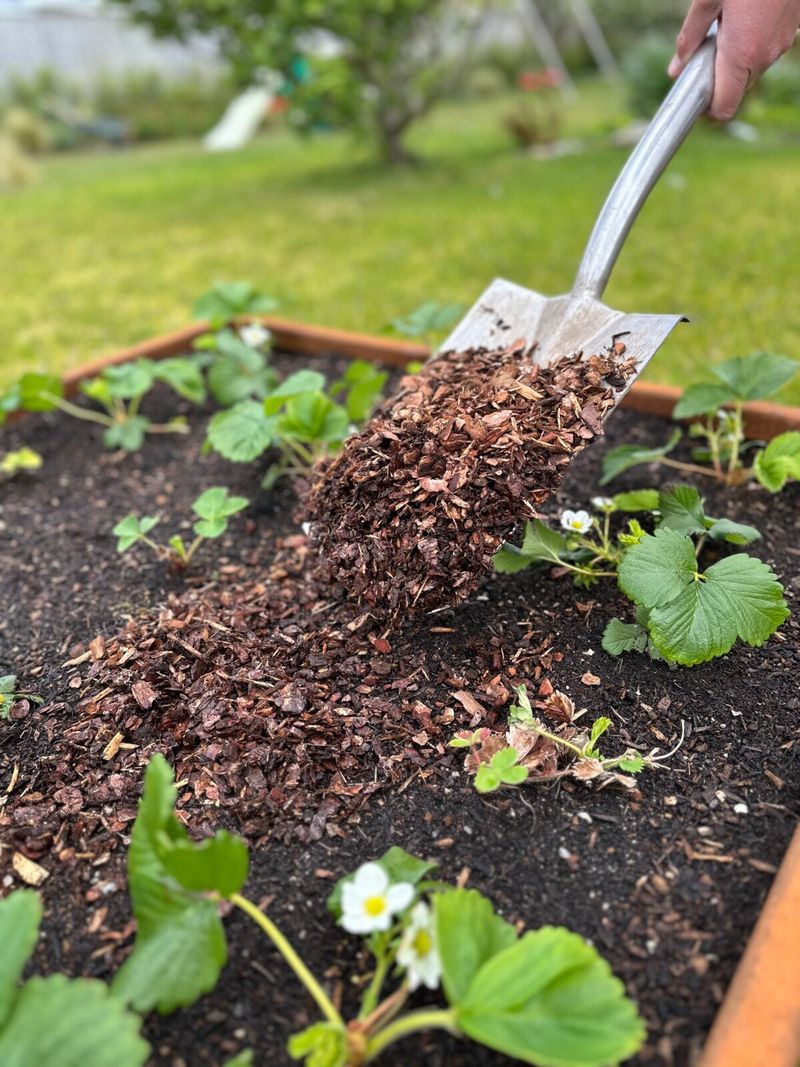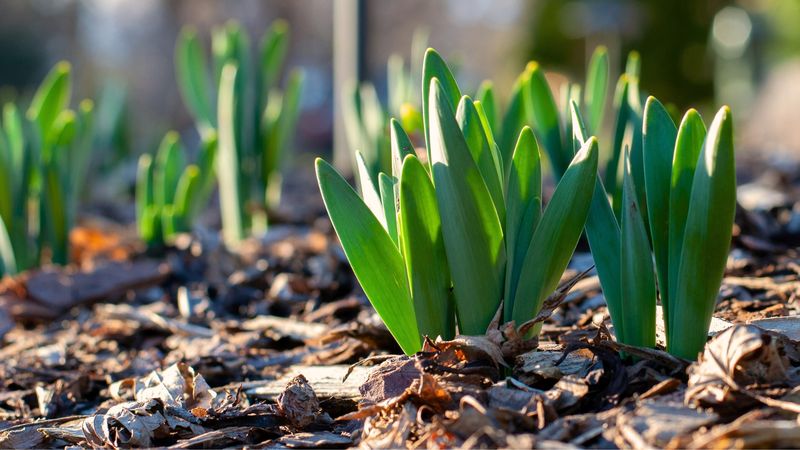Winter in Michigan can be harsh on garden beds, but there’s a simple trick that experienced gardeners swear by: deep mulching. This method involves laying down a thick layer of organic material over your soil before the cold really sets in.
It’s like tucking your garden in with a warm blanket that protects it from freezing temperatures, erosion, and nutrient loss all season long.
1. Insulation Against Freezing Temperatures
A generous layer of mulch acts as a protective barrier between your soil and the bitter cold air. When Michigan winters bring those subzero nights, the mulch keeps the ground temperature more stable, preventing rapid freeze-thaw cycles that can damage plant roots and soil structure.
Think of it as wrapping your garden in a cozy winter coat. The organic material traps air pockets that slow down heat loss from the soil below, keeping beneficial microorganisms alive longer into the season.
2. Moisture Retention Throughout Winter Months
Even during winter, soil needs moisture to stay healthy. Deep mulch prevents water from evaporating too quickly when those occasional sunny days warm things up briefly.
Michigan gardeners know that winter can bring unpredictable dry spells between snowfalls. A thick mulch layer holds onto whatever moisture is present, ensuring that when spring arrives, your soil isn’t bone-dry and depleted. This means plants can start growing sooner because the ground is already hydrated and ready.
3. Weed Suppression Before Spring Arrives
Applying a deep layer of mulch now means fewer weeds competing with your plants come springtime. Weed seeds need light to germinate, and a thick blanket of organic matter blocks that light effectively.
Many Michigan gardeners appreciate this head start on weed control. By the time planting season rolls around, your beds are cleaner and easier to work with. You’ll spend less time pulling weeds and more time enjoying your garden’s growth throughout the growing season.
4. Soil Erosion Prevention During Thaw Cycles
Spring thaws in Michigan can wash away valuable topsoil if your beds aren’t protected. Heavy mulch holds soil in place when snow melts and rain falls, preventing erosion that strips away nutrients and organic matter.
Without this protection, runoff can create gullies and uneven surfaces in your garden. Mulch anchors everything down, maintaining the structure you worked hard to build during the growing season. Your soil stays where it belongs, ready to support healthy plant growth.
5. Nutrient Enrichment As Mulch Breaks Down
Organic mulch materials like shredded leaves, straw, or wood chips slowly decompose over winter. This natural process releases nutrients back into the soil, enriching it for the next growing season. Michigan’s freeze-thaw cycles actually help break down the mulch material.
By spring, you’ll notice the mulch has settled and partially decomposed, adding valuable organic matter that improves soil texture and fertility. It’s like giving your garden a slow-release fertilizer that works all winter long without any extra effort.
6. Protection For Perennial Roots And Bulbs
Perennials and spring bulbs need extra protection during Michigan’s coldest months. Deep mulch shields their root systems and dormant bulbs from extreme temperature swings that can cause damage or prevent spring blooming. Many perennials can handle cold, but sudden temperature changes stress them.
A thick mulch layer moderates those fluctuations, creating a more stable environment underground. When spring arrives, your perennials emerge stronger and your bulbs bloom reliably because they stayed protected all winter beneath their mulch blanket.

